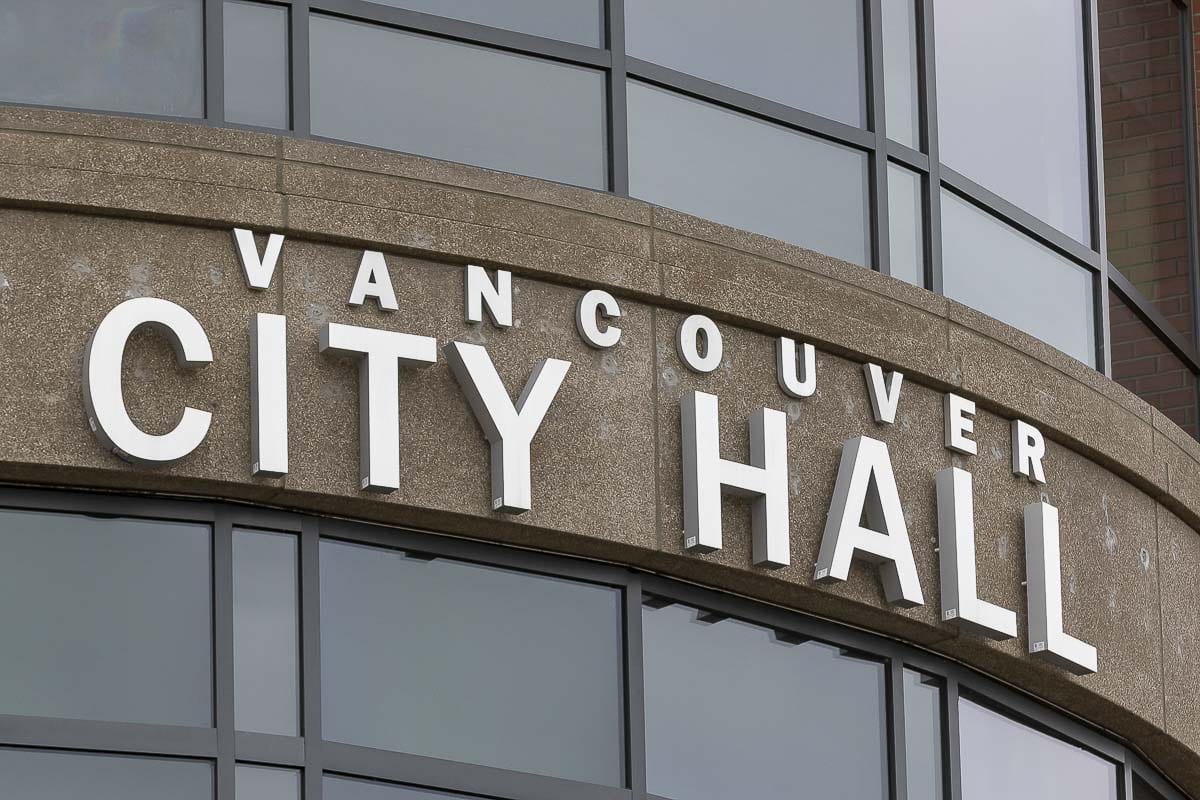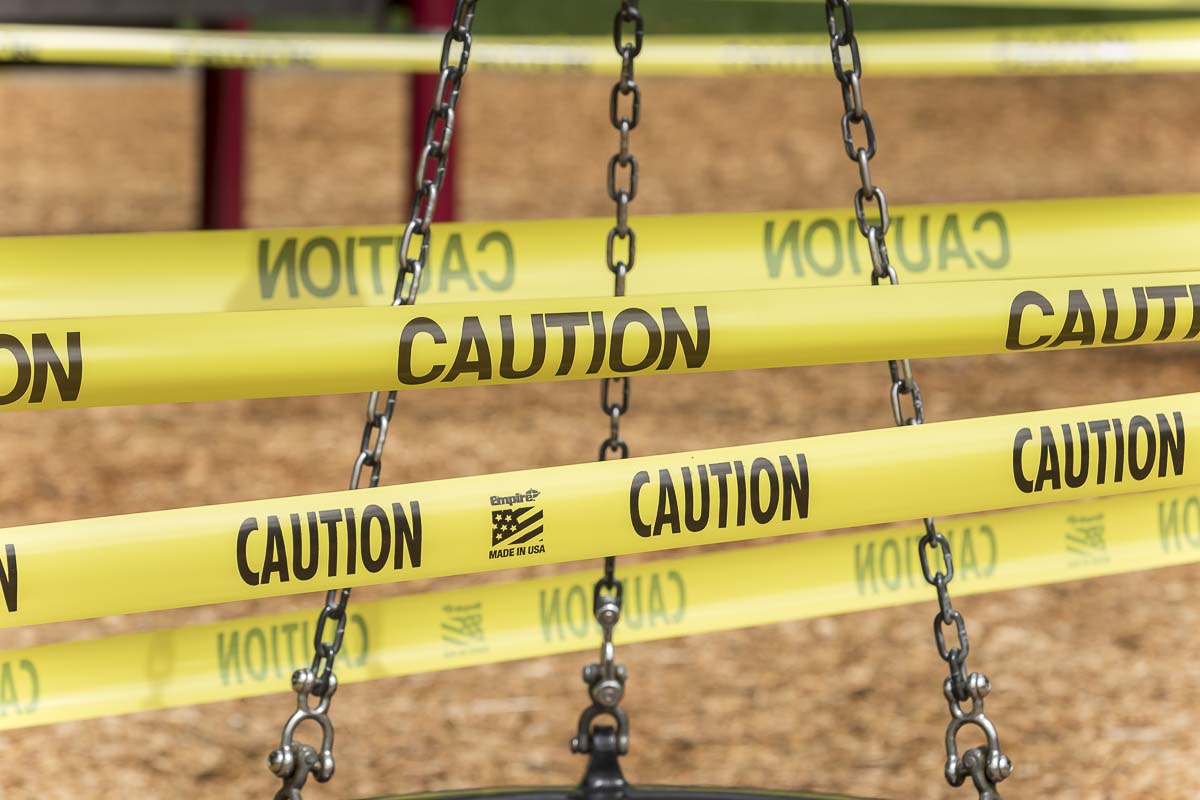The city says many large event organizers supported the extension of the ban
VANCOUVER — Members of the Vancouver City Council on Monday approved several new emergency ordinances and extended several others connected to the ongoing COVID-19 pandemic.
Emergency Order 2020-11 provides emergency relief to small businesses in the form of a suspension of business license fees and business licensing surcharge for renewals, effective April 1 through March of 2021.

City Manager Eric Holmes said the ordinance would provide an estimated $5 million in relief for local businesses impacted by the ongoing shutdowns during the pandemic.
Natasha Ramras, the city’s chief financial officer, said they were also working to refund around 360 businesses that had already renewed their business licenses for April.
The 12-month period will allow all businesses within the city to benefit from the suspension, since they renew at different times during the year.
While cities across the state await word on whether Gov. Jay Inslee will extend his stay-at-home order beyond its current May 4 expiration date, some services in Vancouver have resumed.
Holmes said crews have begun limited facilities maintenance, including turf management, and mowing.
“The concern there was that with neglect, we would lose turf in our parks facilities and rights-of-way to spoilage,” Holmes said, “either by going to seed or weed.”
Among the more controversial orders debated by council members Monday night included an extension of the cancellation of city-permitted events with planned attendances of more than 250 through July 31.
That would include movies in the park, the Recycled Arts Festival, and more, though an exception is being made to allow the Vancouver Farmers Market to go forward with social distancing measures in effect.
Councilor Sarah Fox has been representing the council at meetings of the Emergency Operations Center, run jointly by the Clark Regional Emergency Services Agency (CRESA) and Clark County Public Health, and said the extension to the end of July gave her pause and sparked a healthy debate.
“The question I raised is that July 31 is pretty far out there,” said Fox, “and is there a possibility that some of these events could still go forward, perhaps modeled after some of the measures that we are utilizing the farmers market.”
The discussion, Fox said, centered around the months of planning that goes into city-permitted events of this size.
“And the people that are trying to organize them, and all the money that needs to be put down for these events to move forward,” said Fox, “Those sorts of aspects that are beyond just the participants that just really enjoy going to the events and being part of our community.”
“We wanted to provide some level of certainty in what is, inherently, a very uncertain time for event organizers, the community and the city,” added Holmes, noting that there is even doubt about whether there would be enough city staff to cover these events, should the city need to begin furloughing people as the economic impact of the pandemic deepens.
“This is definitely one of the most challenging times for the business of Parks and Recreation that I’ve seen in my 35-year career,” added Vancouver Parks and Recreation Director Julie Hannon.
“When you usually have 15,000 people at a Recycled Arts Festival, if you have 3,000, even over a weekend, with a farmers market model of letting 250 people in, it simply won’t pencil for many of the vendors who have worked long and hard to sell their goods in these locations,” she added.
Hannon also noted that organizers of several large Spring and Summer events were already considering canceling or postponing even before the extension of the closure. Many have performers who come from out of state, and there was growing concern that, even if the events went forward, small crowd sizes would mean losing money.
“They needed to make a decision now,” Hannon said, “and I think the city’s leadership in this area has given them the confidence that we’re in this together and they’re not acting alone.”

Councilor Erik Paulsen said he understands the perspective of people who are upset about being told they can’t go to an event that they enjoy, or wondering why the city feels the need to look so far ahead in canceling them.
“That’s a fair perspective, because we are in a fluid situation and a lot can change between now and July 31,” he said, before adding, “As much as we we might like to be able to convene sooner than that, knowing what we know, and knowing what we need to do to be good partners to those who plan these events, I am supportive of this extension.”
Hannon also responded to a question from Councilor Laurie Lebowsky, confirming that the city of Portland has canceled all public events in their parks through the end of the Summer, and closed community centers through June 6.
The council, on Monday, approved closing community centers through May 31, though Hannon said she expects that date may be extended in the near future.
Farmers market opening approved
One notable exception to the shutdown of events at city parks is the Vancouver Farmers Market, which will be allowed to continue with major changes.
No opening date has been set, according to a letter from the Farmers Market on Tuesday.
“As part of our role in supporting a healthy community, we are committed to our mission that you, our valued shoppers and supporters, have safe access to high quality, healthy local food,” wrote Jordan Boldt, executive director for the market. “One of the ways we are doing this is by working with the city of Vancouver and our other community partners to find a safe and responsible way to open a market for our customers to shop at.”

That will include limiting vendors to those providing products deemed essential in the governor’s order, such as fresh fruits and vegetables. One change in the past two weeks is that pre-prepared meals will not be available at the market. In addition, all seating areas will be removed, and there will be no entertainment at the event.
Boldt has also noted that markets in hard-hit areas such as New York and California continue to operate in a modified way, and they have been working with them to learn from the changes they’ve made.
The market has already introduced parking lot pickup at Warehouse 23, and will further work to limit access to the event in order to provide for social distancing.
“I have been thinking about this a lot,” said Councilor Ty Stober on Monday. “For me it comes back to food security is critical in an emergency.”
Stober said that goes both ways. People who live downtown, especially those who receive government assistance for food security, need a place to buy fresh ingredients safely. And, for many local farmers, the market represents one of the few places where they can sell their produce.
“If we lose our local farmers, we continue to make ourselves more vulnerable in at-risk communities,” Stober added.
Other steps
Among other steps taken on Monday, Holmes has been granted emergency purchasing authority, emergency budget authority, and access to the city’s Emergency Reserve Fund through July 31.
The other emergency ordinances approved by the council include:
• Extend the closure of Vancouver Fire Department stations and meeting rooms to public access through May 31, 2020
• Extends the cancelation of all non-essential public meetings through May 31, 2020
• Extends the safety protocols and change in meeting schedule for Vancouver City Council meetings through May 31, 2020 (council will meet on the first and third Mondays only)
• Extends the closure of Vancouver City Hall and Vancouver Police Department precinct lobbies to public access through May 4 (access to non-emergency law enforcement services will still be available by appointment)
• Extends the city’s internal infection disease control protocols to reduce face-to-face contact, reduce travel and increase social distancing through May 31
• Extends the city’s temporary telecommuting policy for its staff through May 4 and authorizes director-approved telecommuting through May 31
• Extends the suspension of on-street parking enforcement through May 31
• Requires public farmers market operating on public land do so with a city-approved operation plan and city-issues Fire and Life Safety Permit through July 31
• Extends financial assistance for city water and sewer utility customers through May 31
• Extends protections for property owners against foreclosure through May 31
• Extends protections for small businesses against eviction due to non-payment through May 31
• Extends safety and sanitation requirements for landlords entering a rental property through May 31
• Suspends park picnic shelter rentals, and closes all city-run community gardens, playgrounds and water features through July 31
• Closes the Water Resources Education Center through May 31




